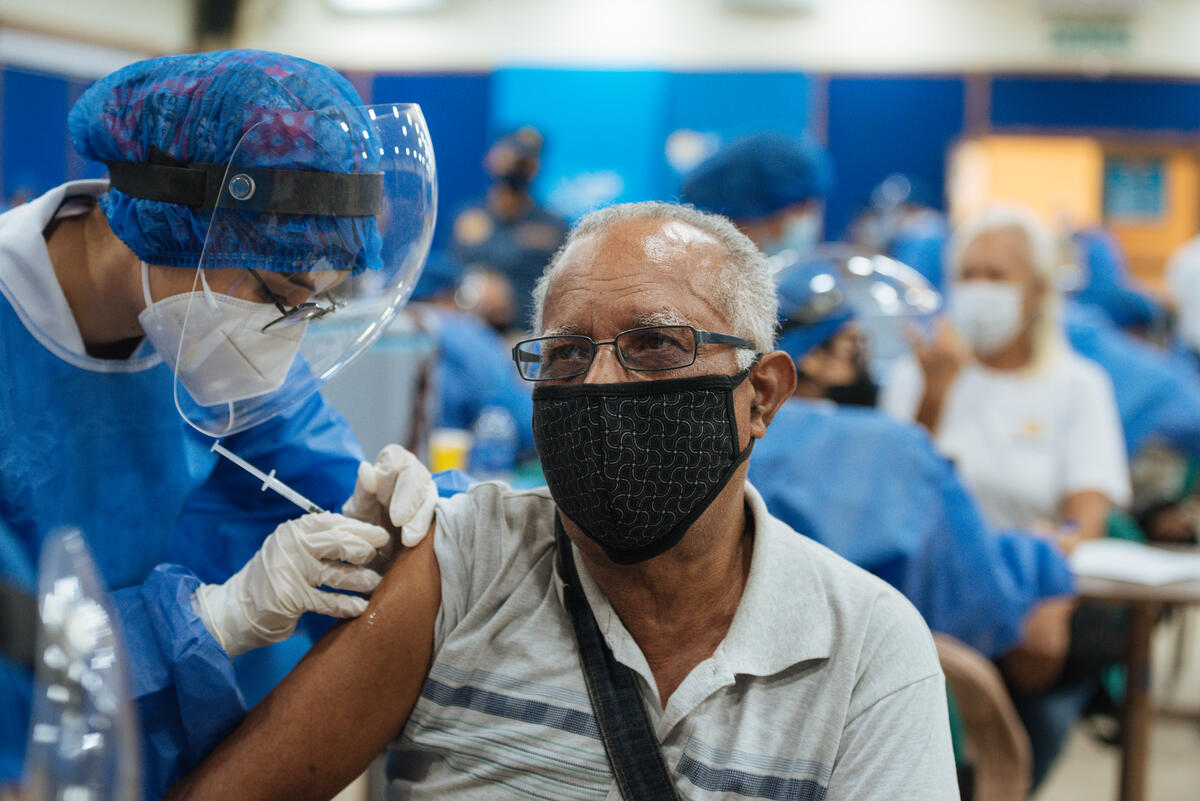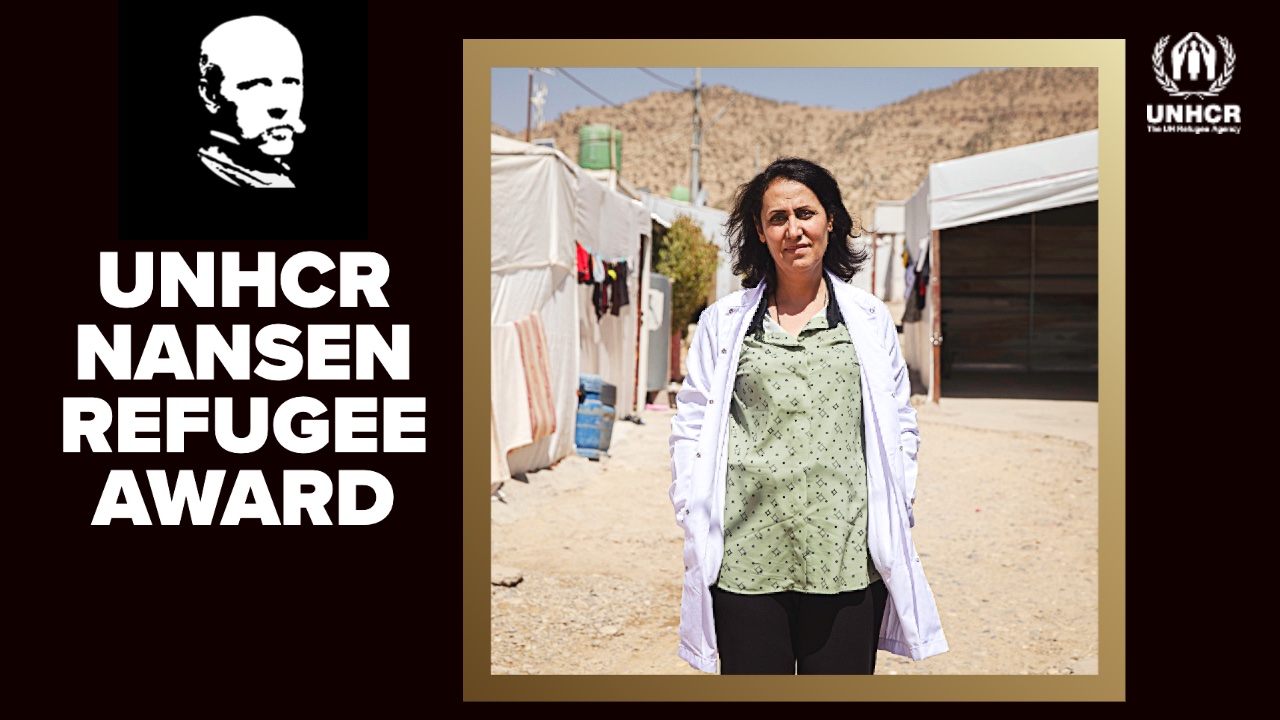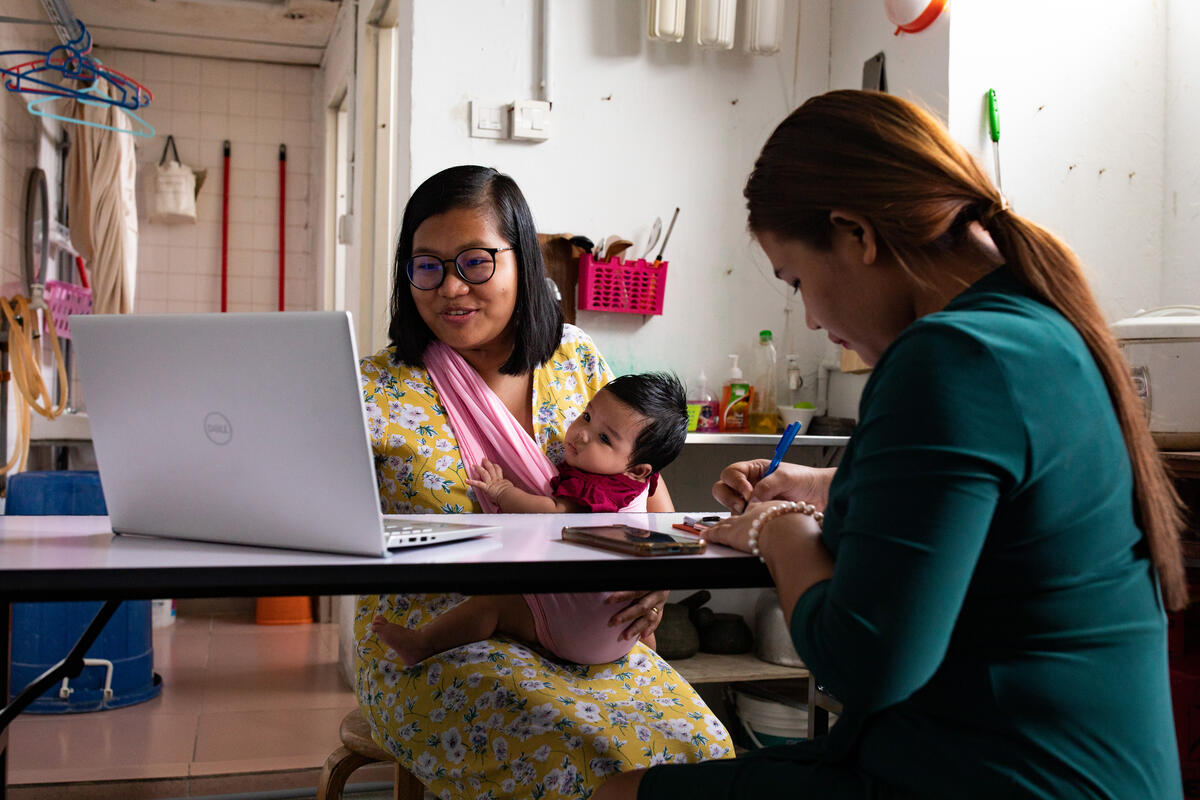Refugee health challenges remain high amid COVID-19
Refugee health challenges remain high amid COVID-19

Malaria remained the single most common cause of illness among refugees in 2020, while psychological distress caused by COVID-19, and acute malnutrition constituted major threats to refugees’ health and well-being, according to data released today by UNHCR, the UN Refugee Agency, in its Annual Public Health Global Review.
In a year marked by the pandemic, UNHCR’s key focus was to advocate for the inclusion of refugees in COVID-19 national response plans. The agency also worked to support national health systems by procuring personal protective equipment, other equipment like oxygen concentrators, COVID-19 tests and medicines, and by increasing intensive care capacity in countries such as Lebanon and Bangladesh.
At the onset of the pandemic, amidst movement restrictions and the fear of getting infected, refugees’ access to health facilities was significantly reduced. However, adaptations were made to ensure that refugees continued to have safe access to essential services. As lockdowns and restrictions eased, the use of health services was largely restored.
“We worked to reduce crowding in clinics, find alternatives to delivering services, such as with remote follow-up, and, above all, to keep refugee communities informed,” said Sajjad Malik, UNHCR’s Director of the Division of Resilience and Solutions. “Special efforts were needed to secure continuity of maternal and neonatal health services, as well as mental health services, given that refugees’ capacity to cope was severely stretched due to COVID-19.”
Overall, during last year, UNHCR supported access to comprehensive primary health care services and referral to secondary and tertiary care in 50 countries, hosting 16.5 million refugees.
In 2020, 112,119 live births were reported from 159 refugee settlements in 19 countries – a similar level to 2019. Neonatal deaths represented a significant proportion of deaths among children under the age of five and maternal mortality continued to raise concerns in most countries where UNHCR operates. Too many women in refugee settings continued to die from pregnancy-related complications which are preventable and treatable. UNHCR works to support clinics with more trained staff, medicine and equipment, in order to manage obstetric emergencies, and save mothers and newborns.
As in 2019, malaria was the single most common cause of morbidity reported among refugees (20 per cent), followed by upper and lower respiratory tract infections. To fight malaria, UNHCR and partners work to secure access to early diagnosis and treatment, and help communities find ways to reduce exposure to mosquito bites, including through insecticide treated mosquito nets. They also advocate for environmental measures to reduce mosquito breeding sites.
Acute malnutrition remained a significant health problem in many UNHCR operations. The onset of the pandemic resulted in mobility restrictions, and UNHCR, in collaboration with partners, had to review the delivery of nutrition programmes to ensure both continuity of care and COVID-19 mitigation measures.
For example, therapeutic and supplementary feeding programmes helped bridge the nutrition gap experienced by children, women, and other people with specific nutritional needs such as those living with HIV and/or tuberculosis. To continue these programmes, UNHCR prepositioned supplies to allow for the provision of rations for a longer duration and reduce the frequency of visits to clinics. Moreover, the agency increased distribution days to reduce crowding. In places such as southern Chad and western Rwanda, UNHCR also provided counseling via radio and telephone on recommended feeding practices for infants and young children.
“As we are in the second year of the COVID-19 pandemic, funding is required to sustain the pandemic response in support of national systems,” Malik said. “However, this must not be at the cost of maintaining access to other essential health services. Overall, a much larger investment is needed, to ensure that refugees – just like everyone else – can enjoy the right to the highest attainable physical and mental health.”
Notes to Editors:
For more information on this topic, please contact:
- In Geneva, Aikaterini Kitidi, [email protected], +41 79 580 8334









